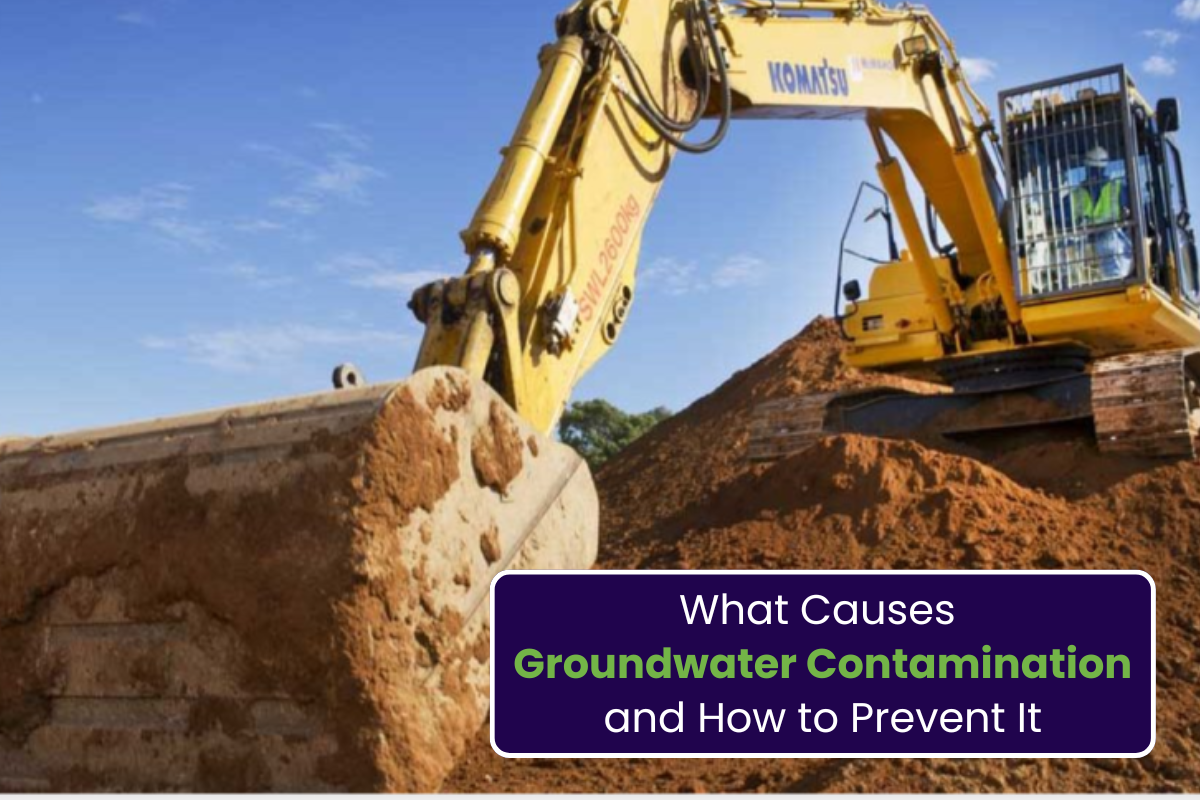Groundwater plays a vital role in New Jersey’s water supply, serving millions of residents and businesses across the state. However, as urbanization and industrial activity increase, so does the risk of groundwater contamination. Polluted groundwater not only impacts drinking water quality but also poses significant threats to public health, agriculture, and the environment.
Understanding the causes of groundwater contamination and knowing how to prevent it is key to protecting this critical resource. In this article, we’ll explore the leading sources of groundwater pollution in New Jersey and offer practical ways to safeguard your land and water for the future.
Common Causes of Groundwater Contamination in New Jersey
1. Leaking Underground Storage Tanks (USTs)
One of the most frequent causes of groundwater contamination in New Jersey comes from old or leaking underground oil tanks. Many homes and commercial properties built before the 1980s had underground tanks used to store heating oil. Over time, these tanks can corrode and leak oil into the surrounding soil and groundwater.
Once oil seeps into the ground, it spreads quickly, potentially contaminating nearby wells, aquifers, and even municipal water supplies. Hiring a certified oil tank removal company in NJ is often the most effective way to detect, remove, and remediate contaminated sites before they become a health hazard.
2. Industrial Waste and Chemical Spills
New Jersey has a long history of manufacturing and industrial operations. While these industries support the economy, they can also leave behind harmful byproducts. Improper disposal of chemicals, heavy metals, and solvents can leach into the ground and reach underground water reserves.
Sites formerly used for manufacturing, dry cleaning, or chemical storage are particularly vulnerable. Even accidental spills on construction sites can create long-lasting impacts if not handled promptly and professionally.
3. Agricultural Runoff
Farms across New Jersey often use fertilizers, herbicides, and pesticides to maintain crop yield. Unfortunately, when these chemicals are overused or applied before rainfall, they can percolate through the soil and contaminate groundwater. Nitrate contamination, in particular, poses serious health risks, especially for infants and pregnant women.
4. Landfills and Improper Waste Disposal
Improper waste disposal, whether from households or businesses, is another significant contributor. Landfills that aren’t properly lined or monitored can release leachate—a liquid mix of decomposing materials and toxins—into the soil. Similarly, illegal dumping of hazardous materials, paint, batteries, or used motor oil can severely impact groundwater quality.
5. Septic System Failures
In rural and suburban parts of New Jersey, many properties still rely on septic systems for wastewater treatment. If these systems are not properly maintained or installed, they can leak sewage into the ground, introducing harmful bacteria and viruses into the water supply.
How to Prevent Groundwater Contamination
1. Remove or Upgrade Aging Oil Tanks
If you own a property with an underground oil tank—especially one that’s unused or more than 30 years old—it’s crucial to have it inspected. An experienced oil tank removal company in NJ can assess whether the tank poses a contamination risk and safely remove it. Proactive removal helps prevent future leaks and costly environmental cleanups.
2. Use Proper Storage and Disposal Techniques
Make sure all chemicals, fuels, and hazardous substances are stored in approved containers and kept away from drainage areas or bare soil. Dispose of waste materials at certified hazardous waste collection centers rather than in regular trash or drains.
3. Regularly Inspect Septic Systems
Schedule regular inspections for your septic system and ensure that tanks are pumped at recommended intervals. Avoid flushing non-biodegradable items, grease, or chemicals into your system. Good maintenance goes a long way in preventing leaks and groundwater pollution.
4. Implement Eco-Friendly Farming Practices
Farmers and landowners can reduce contamination risks by adopting sustainable agriculture practices. This includes using controlled-release fertilizers, creating buffer zones near water bodies, and minimizing pesticide application. These changes not only protect the environment but also enhance soil health.
5. Choose Effective Groundwater Contamination Solutions
When contamination is already present, it’s important to work with professionals who specialize in groundwater contamination solutions. These may include soil excavation, groundwater treatment, bioremediation, and long-term monitoring. The right remediation approach depends on the pollutant type, site conditions, and extent of contamination.
Final Thoughts
Groundwater contamination in New Jersey is a serious issue—but it’s not irreversible. By understanding its causes and acting proactively, residents, businesses, and landowners can make a big difference in protecting this vital resource. Whether you’re dealing with an aging oil tank, managing a farm, or maintaining a septic system, taking action today can help ensure clean, safe water for generations to come.
If you suspect contamination on your property or need expert guidance, don’t hesitate to consult an oil tank removal company in NJ or a team that specializes in groundwater contamination solutions. The investment you make now will save you time, money, and environmental impact in the future.

